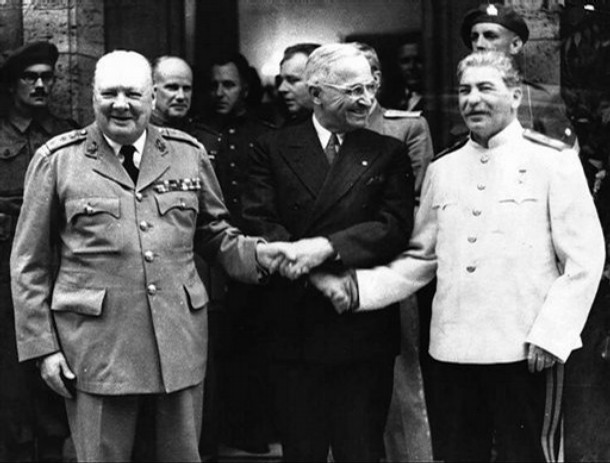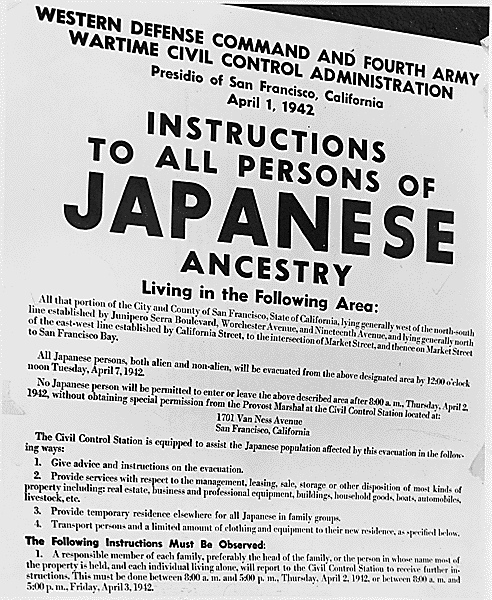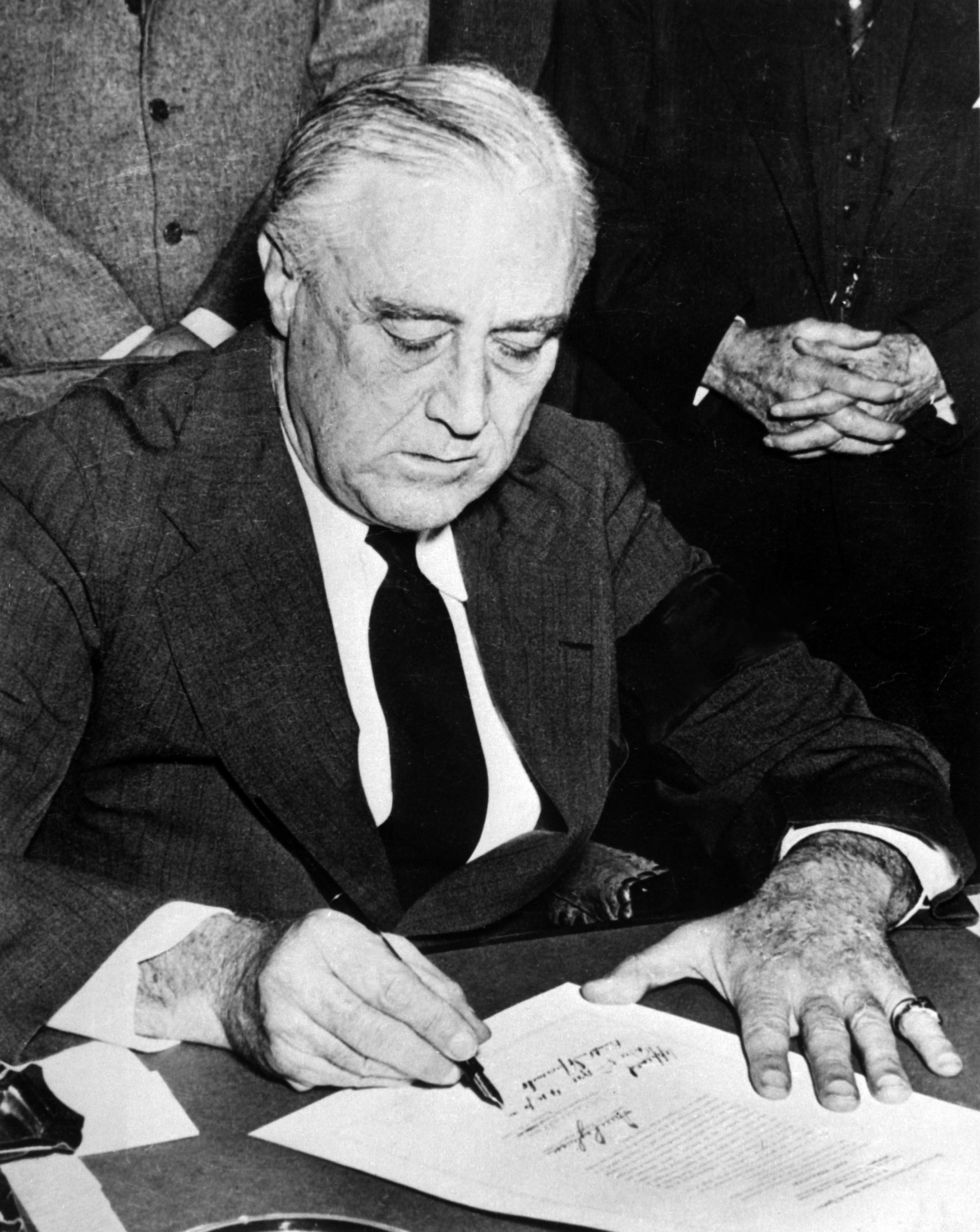Monday, April 2, 2012
LAD #37 Brown V. Board of education
Brown V. Board of education is considered a huge step forward in the fight for civil rights in the United States. It broke a precedent that had been standing in the United States for almost a hundred years. "Separate but equal" was a common term that was far from its name. Institutions were indeed separate, but not equal. This specific case was sparked with the specific example of Lind Brown who had to travel a ridiculous amount for a girl in grade school, one mile of it through a railroad yard. Even though there was a white school near her house, they refused to let her attend there, which would later spark the court case backed by the NAACP. But the fight continued to more than just Linda Brown, it was over whether African American children were affected by this separation. When the decision was finally announced that it found in favor of Brown, it broke a precedent, but it would be another fourteen years until the civil right s movement was in full swing, and then, lawfully everyone would be treated equally.
Sunday, March 25, 2012
LAD #36 Truman Doctrine
It was no secret that president Harry Truman disliked communism. It was not only communism, but he also disliked the Soviet Union. During WWII the United States aligned themselves with the USSR. This forced the president, and Joseph Stalin to work together, this was hard for Truman to do since he despised Stalin, and thought he was not trustworthy. In 1947 the Truman Doctrine was introduced to describe the support that the US would be giving Greece, and Turkey. He stated that these free people should not be "suppressed" by a outside force that would force its government upon them. It would not only be to protect the people at "risk" but it would also benefit the US, for there to be one less country to fall to communism. These countries would need aid in order to continue to function without communism. In the past England had supported Greece, but considering their current status they could no longer pay for their support, and they requested the United States funding. This policy would be called containment, in other words it would contain communism to its current place. Instead of congress sending military, and all, it would only send 400 million dollars for support.
Monday, March 12, 2012
LAD#35 FDR's executive order
This executive order is one that is unlike any other order the United States has seen within recent history. Executive order 9066 gave the secretary of war Henry L. Stimson the authority to create war zones in regions of the United States. In other words at this time Japanese Americans were forced out of the place that they called home, and sent to camps where they would be forced to reside. These people were not criminals, or even Japanese citizens, they were US citizens, and at this time all of their civil liberties were being revoked to "protect" the country. The intention of this act was to prevent spies from connecting with Japanese counterparts.In the end however 120,000 Japanese Americans were forced to live in these camps
LAD #34 FDR'S declaration of war
"December 7th 1941 a date which will live in infamy" That line is a exert from one of President Franklin Roosevelt's most remembered speeches. The speech was asking congress to declare war on Japan. The day before this speech was given Pearl Harbor, a US naval base was attacked by the Japanese. FDR describes the negotiations that had been occuring between the two nations, and that this attack came from nowhere, it was both unprovoaked, and uncalled for. The negotiations between the nations were now considered worthless. But the attack on Pearl Harbor had left the Pacific fleet in dissrepair, and it killed thousands of Americans. He also mentions that the empire of Japan had attacked many other Pacific islands including several other American islands. Basically this could not stand, these attacks would only get larger. But for our safety alone we would need to intervein. And in the end he blaitinly asks congress for a declaration of war, and earning it with little resistance.
Monday, March 5, 2012
LAD #32 The Kellogg-Briand Pact
The Kellogg-Briand pact was a peace treaty primarely between France, and the United States. However it was also signed by England, Japan, Germany, Japan, and Italy.The primay purpose was to prevent war from haoppening, but also to promise that no war would break out between the nations. It was drafted by secratary of state Frank B. Kellogg, and Aristide Briand, and after writting this both men earned the Nobel Peace Prize for their efforts. And Unlike the treaty of Versilles this treaty did in fact pass in U.S. congress. This was formulated along the side, not through the leage of nations. However it was smart, and effective at the time, it would not hold up in the years to come.


Monday, February 13, 2012
LAD #30 Schenck vs. US

In the supreme court trial Schenck vs. US, first amendment rights were up in the air. The first amendment states that all citizens shall have free speech, in other words citizens can talk about whatever they feel, and not worry about being punished. Charles Schenck a secretary for the socialist party sent anti propaganda speaking out against the war. But it was not only the war, but it went against the draft encouraging people to avoid it. He was charged with conspiracy, and in the end the supreme court decided in favor of the United States. Stating that the circumstances of the situation rule against Schenck, in peacetime it is one thing to speack out against the draft, however during wartime it is dangerous to speak out against the draft. Since it is in the country's best interest.
Monday, January 16, 2012
MLK's "I have a dream speech"
In August of 1963 the March on Washington changed civil rights history for the 20th century. The most remembered of the day being Martin Luther King Jr's I have a dream speech. Which has also gone down as one of the most influential speeches in American History, up there with the Gettysburg address. That is where King starts his speech about how slaves became free, but not totally free. No longer was there such a thing as a slave, however African Americans were still under the thumb of racism. It had still plagued the country over a hundred years after the civil was, rights for all were still not completely even. One demand of MLK was that he wanted equality, but he wanted right then. That was not a huge demand considering that the African American community had waited a hundred years for equality. Another major message that MLK conveys in his speech is his belief for non violent acts, that fighting would only continue the circle of hatred. But also when equal rights were gained that there could be no grudges on one another. In the end the point of the movement would be for African Americans, and whites to have equal rights, and opportunities. In the end Martin Luther King Jr. was someone that everyone of every race could, and still do look up to.
Sunday, January 8, 2012
LAD #24 Bryan’s “Cross of Gold” Speech
William Jennings Bryan was, and still considered one of the most popular politicians ever. A lot of that had to do with his honesty, and dedication to his supports. And his supporters were extremely dedicated to him, in a way he was an outsider, because of his support of laborers, and unions. When Bryan gave his speech for the democratic convention in 1896 it was considered one of the most famous convention speeches of all time. One of the most important parts of Byran's campaign was his belief in silver to gold ratio, that being a 16 to 1 ratio. He believed that silver should be coined freely, and used as coins. But unlike politicians today he fought for what his supporters believe in, and that is what a public servant is for. He fought for his followers, and thought that the silver fight would be the best part of his presidency for his followers. Bryan was an extremely honest, and Nobel politician, something we have lost in our current politicians.
LAD #23 the populist party
The Populist party found itself fighting for the common man, trying to make their voices heard amongst the rest of the corruption in government. It is the people's voice that should ring louder than the small part of the country that is rich. Overall there must be a party that represenst the regular people's best interests. The party really wants labor unions to take off, so laborers would have many voices, and would be able to gang up against the man. One person by themselves against a corprate giant meant nothing, but thousands banded together could change their industries. They then had a list of wants, one being silver as currency, government regulated hours and wages, and pensions for retired soldiers. Overall the most important demands of them was for the government to listen to the everyday man.
Wednesday, January 4, 2012
LAD #28
Cuba is extremely close to the American boarder, only about 90 miles. In 1895 Cubans revolted against their mother Spain, and after three years the United States grew weary of the war. In 1898 President McKinley asked congress to consider the situation McKinley in his State of the Union address brought the issues with Cuba up, to start discussions of what to do. He talked about how it is not safe for the U.S. being a close as it is. But also that it was effecting trade with other countries. McKinley only saw two options in this situation, one was to compromise between the two, and the other was to ally with one of the countries. But McKinley truly wanted to intervene with the war, and support the Cubans. They had been through hardships, and needed help, but not to forget that doing this would also benefit the U.S. being able to trade freely once again. And then he played the marder card describing the wreck of the good old Maine, not knowing it was an accidental explosion from the ship itself. It was ended with him saying that it is our nation's principles to help them, and regardless of what happened we were in it for the right reasons. But he could obviously could not make the soul decision it was up to Congress.
Subscribe to:
Comments (Atom)







